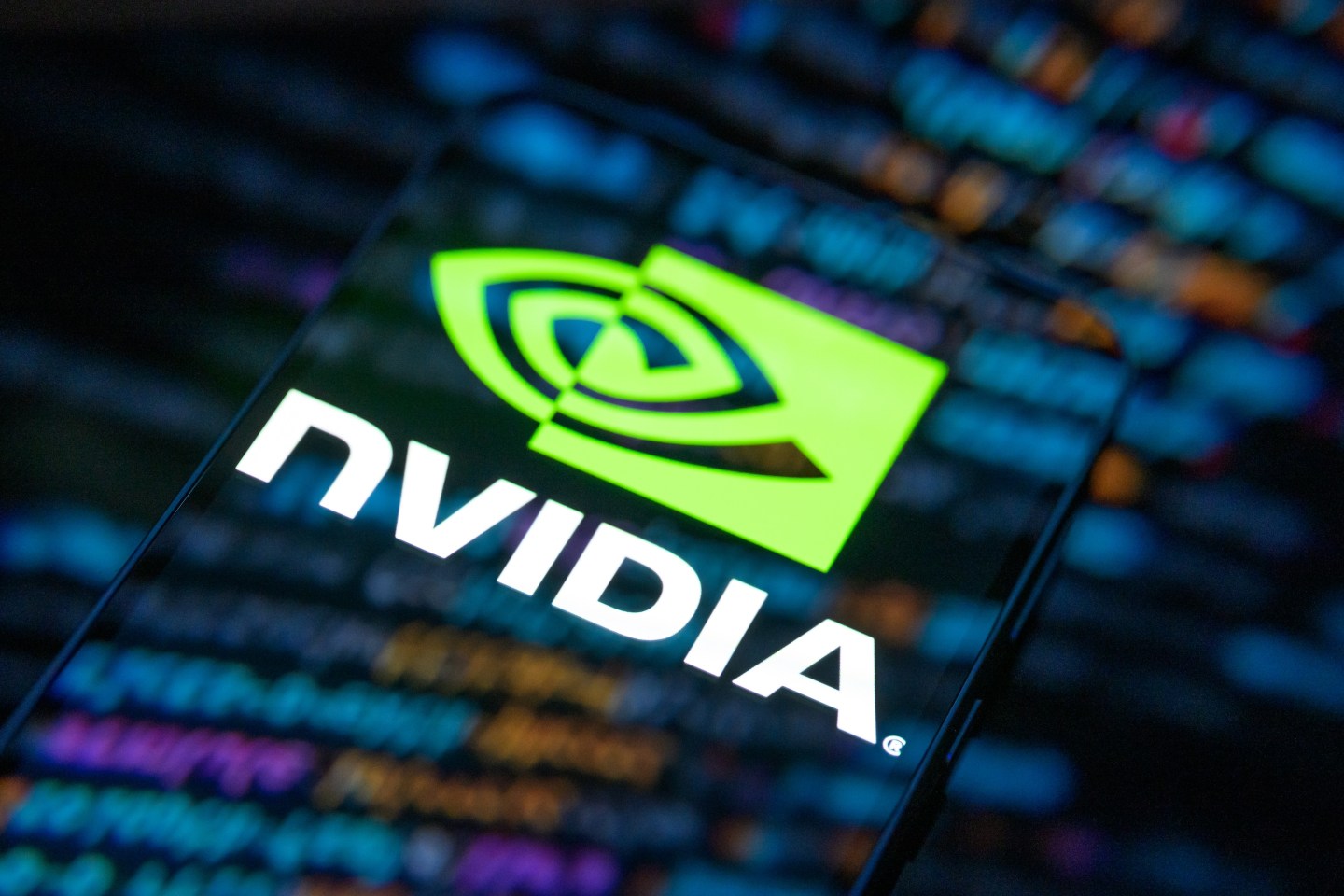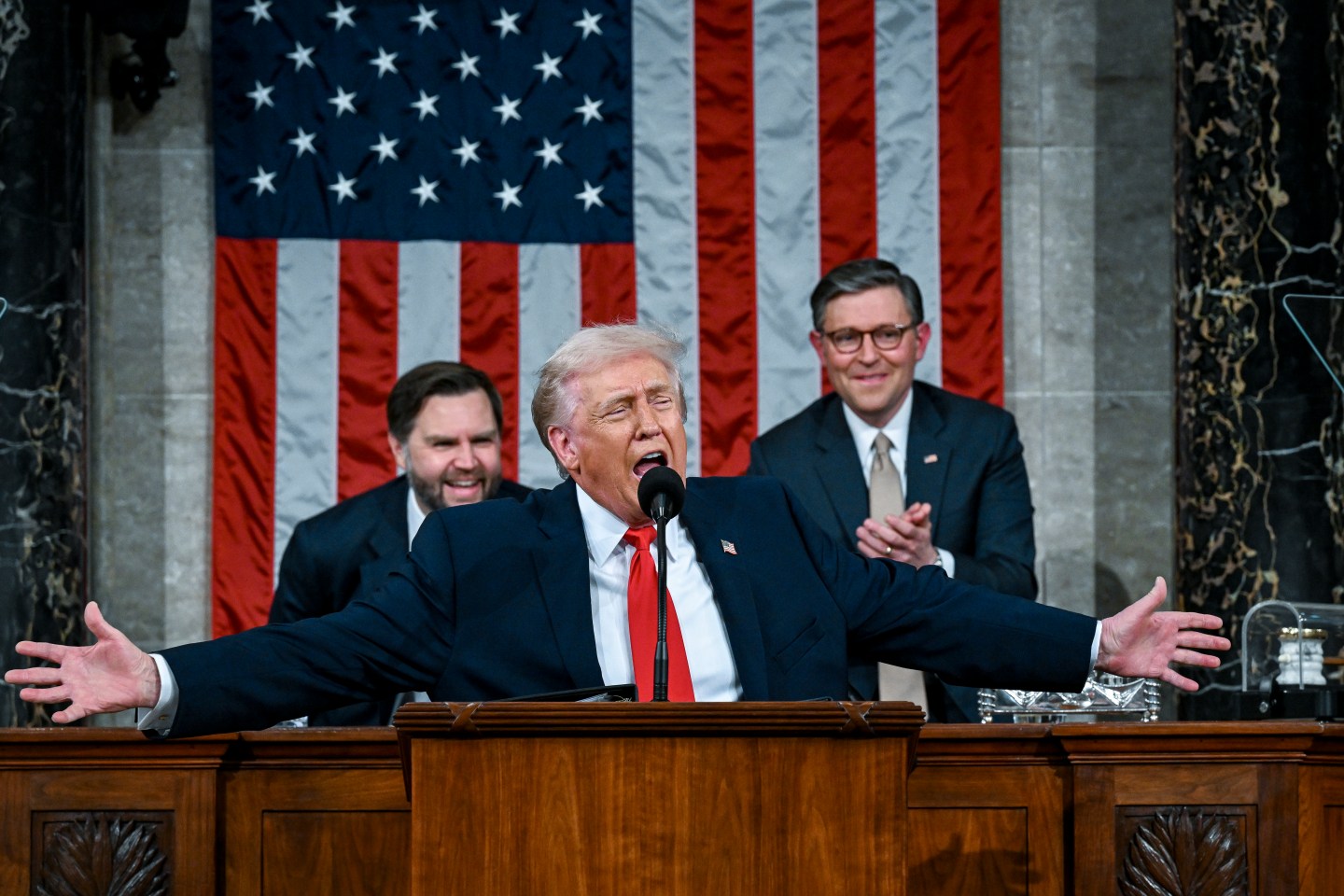Good morning. Had a ball chatting with Julia Villagra of OpenAI and Chris Hyams of Indeed at Fortune’s inaugural Workplace Innovation Summit yesterday.
A statement uttered during our conversation that led the room to murmur in agreement:
“AI won’t take your job, but someone using AI will.”
Today’s tech news below. —AN
Want to send thoughts or suggestions Fortune Tech? Drop a line here.
Trump signs AI deepfake bill into law

U.S. President Donald Trump signed the so-called Take It Down Act into law on Monday.
The bipartisan measure intends to curtail the distribution of nonconsensual intimate images (NCII) including AI-generated deepfakes.
Social media platforms must remove such content within 48 hours of notification. Violators could face FTC fines and up to three years in prison.
The legislation passed with overwhelming support in Congress. The House had voted 409-2 in favor of the bill; the Senate unanimously agreed.
Not everyone is on board, though.
Civil liberties groups including the Electronic Frontier Foundation and the Center for Democracy and Technology have criticized the law, arguing that the takedown provisions could be misused to suppress legitimate content and threaten privacy tools such as encryption.
It certainly didn’t help that President Trump remarked that he might use the law to combat online stories that were unfavorable to him.
“I’m going to use that bill for myself, too, if you don’t mind,” he said, “because nobody gets treated worse than I do online. Nobody.” —AN
Regeneron will buy 23andMe out of bankruptcy
Regeneron Pharmaceuticals has agreed to acquire 23andMe for $256 million following the latter’s Chapter 11 bankruptcy filing in March.
The deal encompasses 23andMe’s core services, including its Personal Genome Service and Total Health offerings, but excludes its telehealth platform, Lemonaid Health, which will be discontinued.
The acquisition is expected to close in the third quarter of 2025, pending court and regulatory approvals.
23andMe pioneered direct-to-consumer genetic testing when it was founded in 2006. Though it proved popular, the company struggled to find a profitable business model since it went public in 2021 at a valuation of some $6 billion. A 2023 data breach affecting nearly 7 million users didn’t help.
The company’s recent bankruptcy filing led to widespread calls for 23andMe’s 15 million users to delete their data to safeguard their privacy from a future owner.
Regeneron, No. 311 on the Fortune 500, pledged to uphold 23andMe’s privacy policies. The New York biotech company presides over one of the world’s largest genomic databases to accelerate the drug discovery process. —AN
New Orleans police secretly used facial recognition cameras
A new Washington Post report says that New Orleans police secretly used a private network of facial recognition cameras to monitor public spaces and identify suspects.
More than 200 cameras, operated by the nonprofit Project NOLA, were used, the report says.
A 2022 city ordinance limited the use of facial recognition by law enforcement to specific investigations involving violent crimes, rather than allow general surveillance.
The ordinance also required police to send scans to the state for examination in a bid to protect public privacy and prevent wrongful arrests.
The camera system has been linked to “dozens” of arrests—some nonviolent—since 2023, according to the Post. In several instances officers failed to disclose the use of facial recognition in their reports.
Civil liberties advocates argue that the program infringes on privacy and due process. There are also concerns that the cameras, supplied by the Chinese company Dahua, are a national security risk.
The New Orleans Police Department says it paused the program in early April after a captain raised questions about their legality.
The department added in a statement to the Post that it “does not own, rely on, manage, or condone the use…of any artificial intelligence systems associated with…Project Nola crime cameras.” —AN
More tech
—Circle in talks to sell to Coinbase, Ripple. It reportedly seeks at least $5 billion.
—Nintendo links up with Samsung. The Japanese gaming pioneer picked the Korean tech giant to make chips for its Switch 2.
—JPMorgan will let clients buy bitcoin. “We’re not going to custody it. We’re going to put it in statements for clients,” CEO Dimon says.
—Nvidia’s robotic reasoning. Its new Isaac GR00T N1.5 is an open, customizable AI model for humanoid reasoning and skills.
—GitHub debuts AI coding agent for GitHub Copilot. It fixes bugs, adds features, improves docs.
—DOJ probes Coinbase hack. A recent data breach involved criminals bribing employees and contractors to obtain client data.
—China-U.S. tech tension continues. China objects to U.S. warnings to companies not to use AI chips from China, including Huawei’s Ascend.














